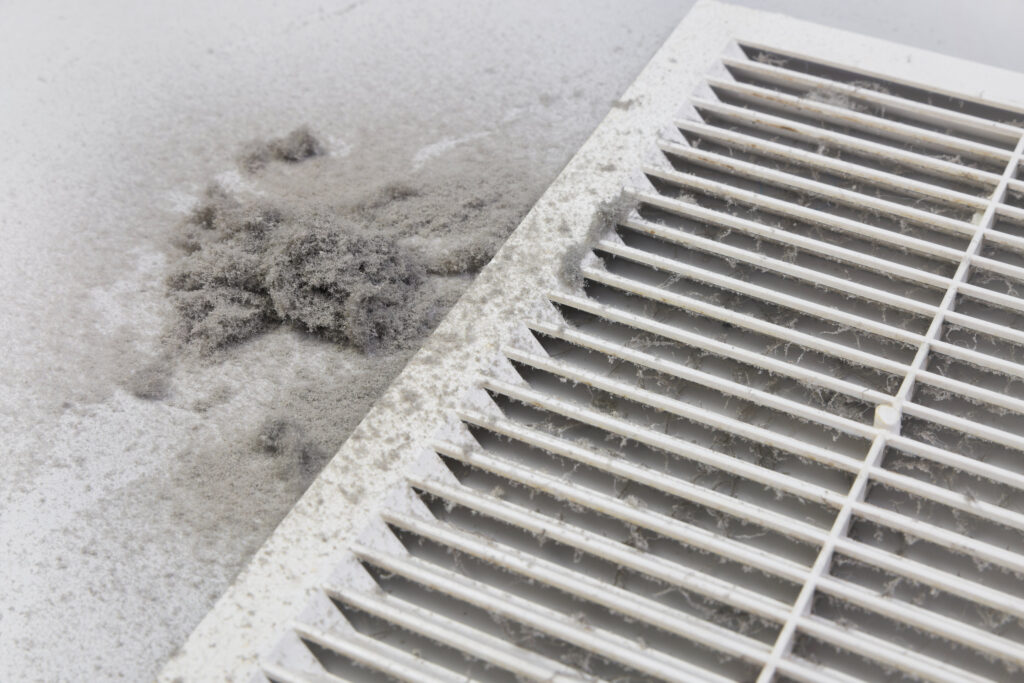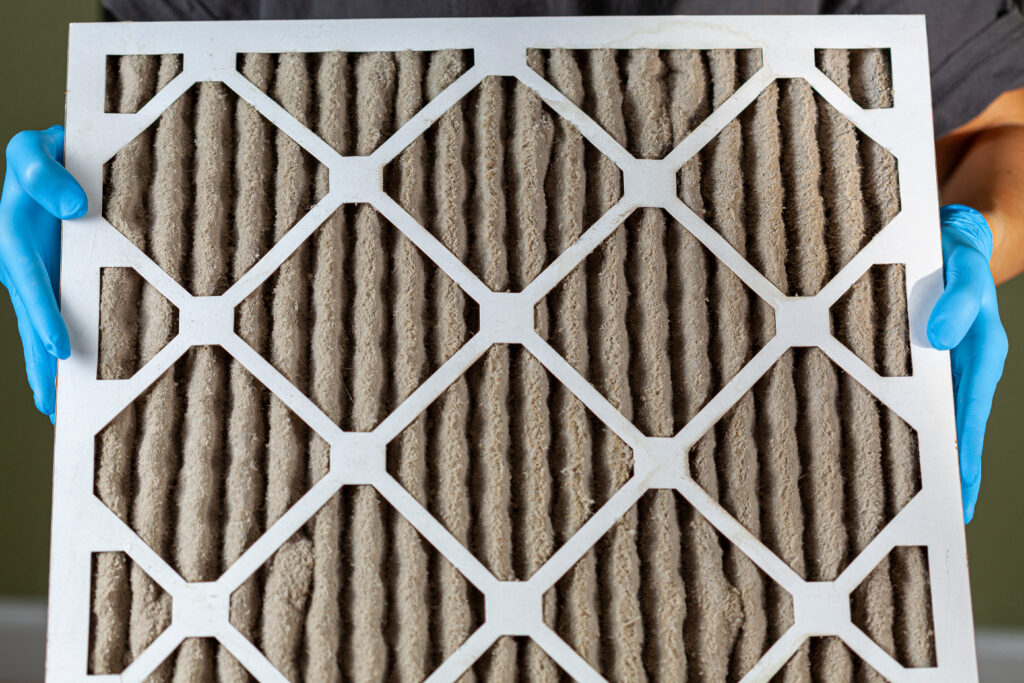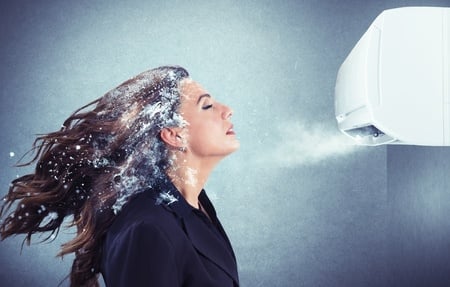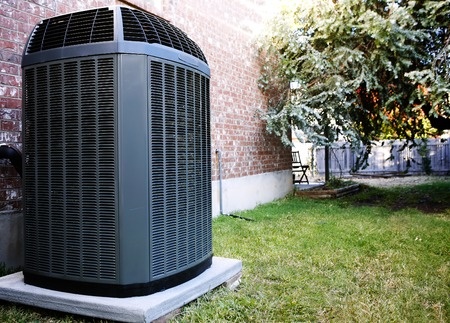Having quality air in your home is necessary. Air filters play a key role in filtering out allergens and particles from the air. Do you know the difference in air filters for your residential home? What’s the difference between MERV air filters and HEPA air filters? In our latest blog, Fritts Heating & Air discusses the difference between the two, air filter ratings and which is best for your home. Be sure to check it out below and don’t forget to call us today to learn more about HVAC maintenance pricing and availability.
What Is an HVAC Filter?
Simply put, an air conditioning filter removes particles and other allergens from your HVAC system to improve the quality of the air circulating in your home. Typically air filters are made of spun fiberglass or pleated cloth, with a porous structure and cardboard frame. Air filters are usually located on the air conditioning system’s return air. This is where particulates that could harm homeowners’ health and comfort are trapped. The filter in your a/c unit cleans impurities when they pass through the filter. From there, the fresh and clean air re-enters the room. This is highly beneficial to those who suffer from allergies, asthma, and other respiratory symptoms. Most HVAC system air filters remove particulates and contaminants such as:
- Dust and dirt
- Pollen
- Mold and mold spores
- Fibers and lint
- Metal, plaster, or wood particles
- Hair and animal fur
- Dead skin or dander
- Bacteria
- Smoke
- Other microorganisms
MERV Air Filters
MERV or Minimum Efficiency Reporting Value, is actually a form of measurement, rather than a type of air filter. MERV values indicate how efficiently various particle sizes are trapped by your home’s air filter. This is not to say that MERV air filters are low quality. They are more than adequate for the needs of typical everyday homeowners. Just be sure to remember that the higher the MERV rating, the better the filtration. A filter with a MERV rating of 13- 16 is considered a high-ranking MERV filter and can remove up to 75% of all airborne particles.
Simply put, the higher the MERV rating, the smaller the particles can be trapped. A lower MERV rating means larger particles are trapped but smaller ones still pass through. Below is a breakdown of MERV ratings and what each category of an air filter is able to stop.
| MERV Rating | Stops |
|---|---|
| MERV 1–4 | – Pollen – Dust and Dust Mites – Textile Fibers |
| MERV 5–8 | – Mold Spores – Furniture Polish |
| MERV 9–12 | – Exhaust Fumes – Lead Dust |
| MERV 13–16 | – Bacteria – Tobacco Smoke – Respiratory Droplets |
| MERV 17+ | – Viruses – Microscopic Allergens |
HEPA Air Filters
HEPA – A High Efficiency Particulate Air filter is the term used to describe a specific type of construction used in an air filter. A HEPA filter is a type of pleated mechanical air filter and is extremely efficient and effective. According to the Environmental Protection Agency can theoretically remove 99.97% of dust, pollen, mold, bacteria, and any airborne particles with a size of 0.3 microns. HEPA air filters are typically favored in operating rooms, clean rooms or any place where the very highest level of filtration is needed, OR where HEPA filters are necessary due to regulatory requirements.

MERV vs. HEPA for Homeowners
As your local HVAC service company, Fritts Heating & Air strongly recommends investing in air filters with a MERV rating of 6-12 for your home! Air filters in this rating range efficiently capture a wide variety of air pollutants without restricting airflow. This is the perfect combination for homeowners.
Which Air Filter Is Best For My HVAC System?
So what air filter should you choose for your home? Using the right type of air filter is important. While the lower-rated air filters are cheaper, they also won’t be very effective at eliminating allergens and other airborne particles. These filters will also be less effective at preventing particles from entering your HVAC system. As a result, they could increase the likelihood of expensive furnace or air conditioner repairs.
With that being said, you can also damage your HVAC system and decrease its lifespan if you use too efficient of an air filter. For most residential homes, you should typically go with something between a MERV 6 and a MERV 12. Anything above this will restrict the airflow to your system, which will force it to work much harder to heat or cool your home.
In most instances, a MERV filter with a 6-8 rating will be fine for residential purposes. However, there are certain cases where you will want to upgrade to a MERV rating of 10-12. For instance, if you suffer from asthma, allergies, or other respiratory issues, a higher-rated filter can further minimize the amount of airborne allergens that could trigger or worsen your symptoms.
If you need assistance choosing the right air filter, be sure to give us a call today! We are more than happy to discuss your system and give you the best recommendations for your home and HVAC system.

Need HVAC Repair or Maintenance? Call Us Today!
Fritts Heat & Air is a reliable Heating & Air service and HVAC contractor with over 20 years of experience. We provide Atlanta and North Georgia with expert heating and air conditioning services. Suppose you need any furnace repair services in Atlanta, GA, and throughout North Georgia. In that case, you can rely on us for your repairs and installation for residential and commercial properties. Since our inception, our philosophy has been to provide our customers with quality and affordable services through professionalism and honesty.
Need HVAC maintenance? You can rely on Fritts. We provide heating and cooling services for air conditioning, commercial HVAC, furnace repair, smart thermostat installation, HVAC repair and installation, and more. Give us a call today!



